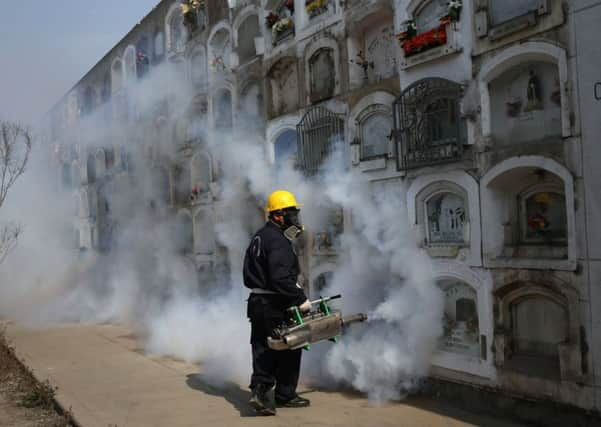Zika virus '˜likely to spread across all Americas', WHO warns


The infection, which causes symptoms including mild fever, conjunctivitis and headache, has already been found in 21 countries in the Caribbean as well as North and South America.
It has been linked to thousands of babies being born with underdeveloped brains and some countries have advised women not to get pregnant.
Advertisement
Hide AdAdvertisement
Hide AdNo treatment or vaccine is available. The virus is native to Africa and was first found to be spreading in the Americas in Brazil in May 2015.
The lack of any natural immunity in the Americas is thought to be helping the infection to spread rapidly.
Zika is transmitted by the bite of Aedes mosquitoes, which are found in all countries in the region except Canada and Chile.
In a statement, The Pan American Health Organisation (PAHO), the regional office of the WHO, said: “PAHO anticipates that Zika virus will continue to spread and will likely reach all countries and territories of the region where Aedes mosquitoes are found.”
It also confirmed the virus had been detected in semen and there were was “one case of possible person-to-person sexual transmission” but further evidence was still needed.
Around 80 per cent of infections do not result in symptoms. The biggest concern is the potential impact on babies developing in the womb. There have been around 4,000 cases of microcephaly – babies born with tiny brains – in Brazil alone since October.
PAHO warned pregnant women to be “especially careful” and to see their doctor before and after visiting affected areas.
Colombia, Ecuador, El Salvador and Jamaica last week recommended women delay pregnancies until more was known about the virus.